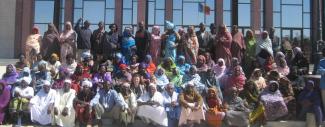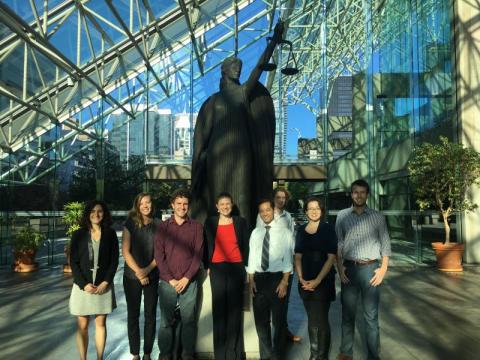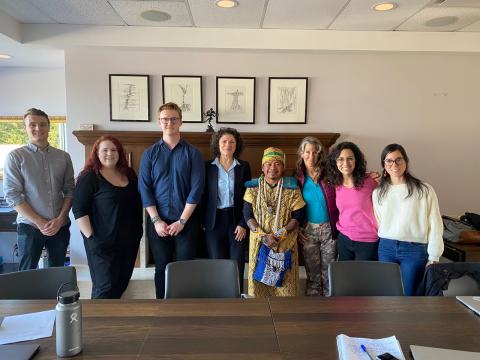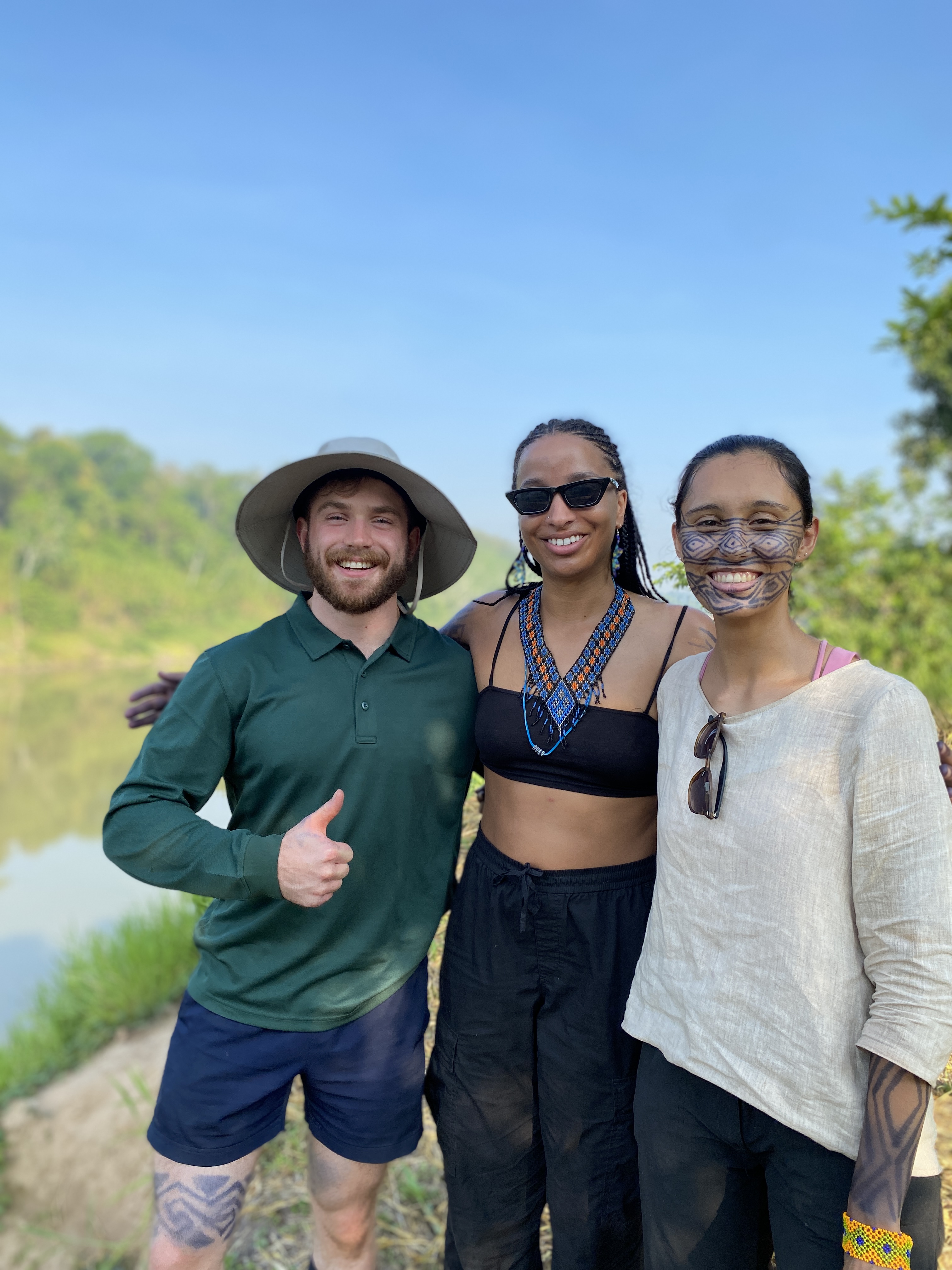
The International Justice and Human Rights Clinic gives upper-year law students the opportunity to work on pressing human rights and global justice concerns through hands-on work on international cases and projects. Students gain experience applying international human rights law, international criminal law and/or international humanitarian law working on specific cases with a range of international justice organizations, including international criminal courts and tribunals, United Nations human rights bodies, and non-governmental organizations. Follow us on Twitter for our latest news and announcements.
The year-long clinic is for second and third year students, as well as LLM students, at Allard School of Law. The clinic includes a 6-unit seminar and clinical component in the Fall semester, followed by a 6 unit clinic in the Spring semester.
In the seminar, students study international human rights, international humanitarian and international criminal law and apply these fields to cutting-edge issues of human rights and global justice. The seminar provides students with the substantive legal foundation necessary to undertake the spring case/project work with competence and professionalism. Evaluation is based on class participation and a final paper.
In the practicum, students gain experience applying international law by working on specific cases with a range of international justice organizations, including international criminal courts and tribunals, United Nations human rights bodies, and non-governmental organizations. Student work may involve contributing to litigation in international criminal courts and tribunals; drafting human rights reports; drafting legal memos and briefs and conducting and presenting legal research that aims to influence public policy.
Students work in teams under close supervision of the Clinic Director, Nicole Barrett, with final case submissions due at the end of the Spring term. The practicum is graded on a honors/pass/fail basis based on clinical work, a bi-weekly journal, and a final 1,500 word reflective paper.


